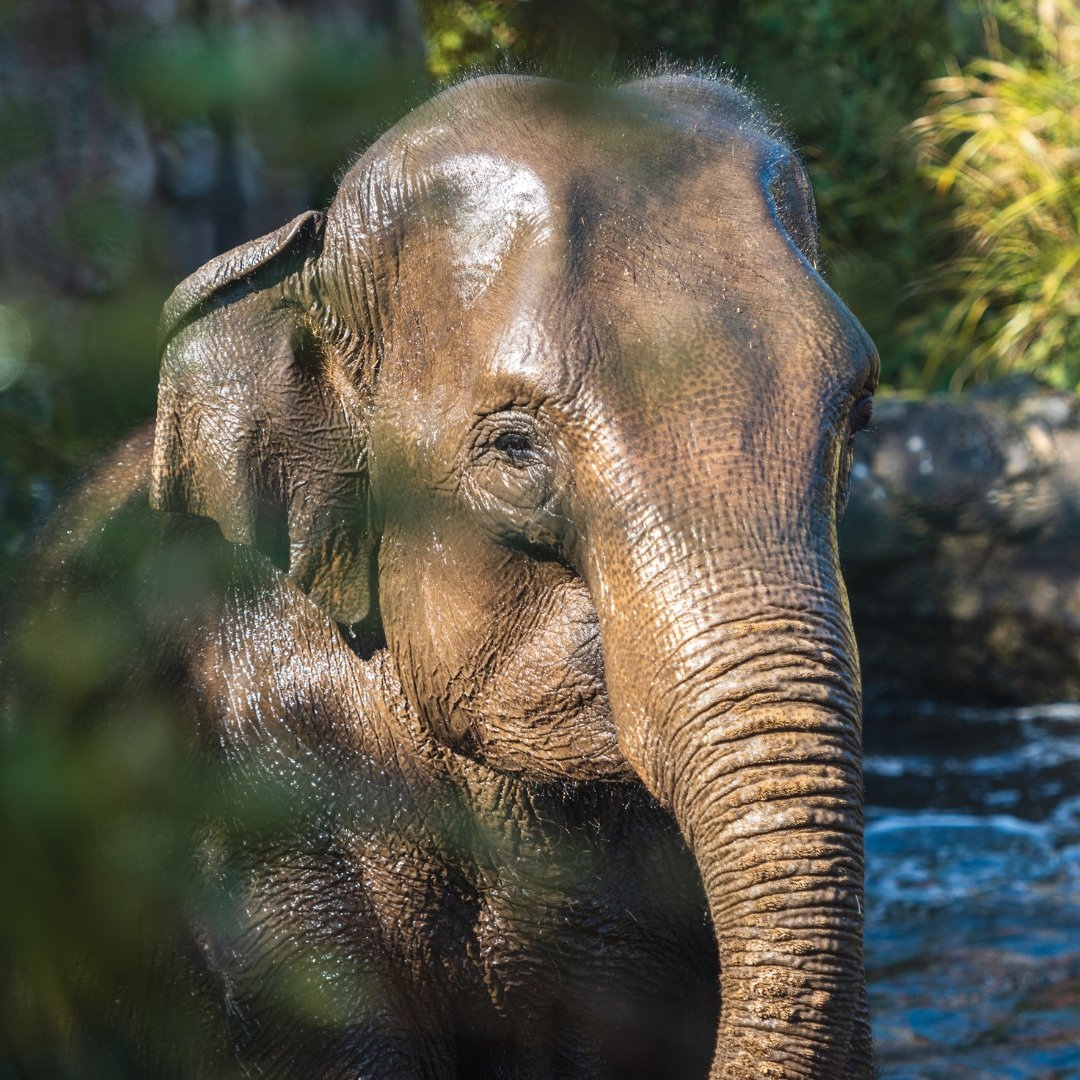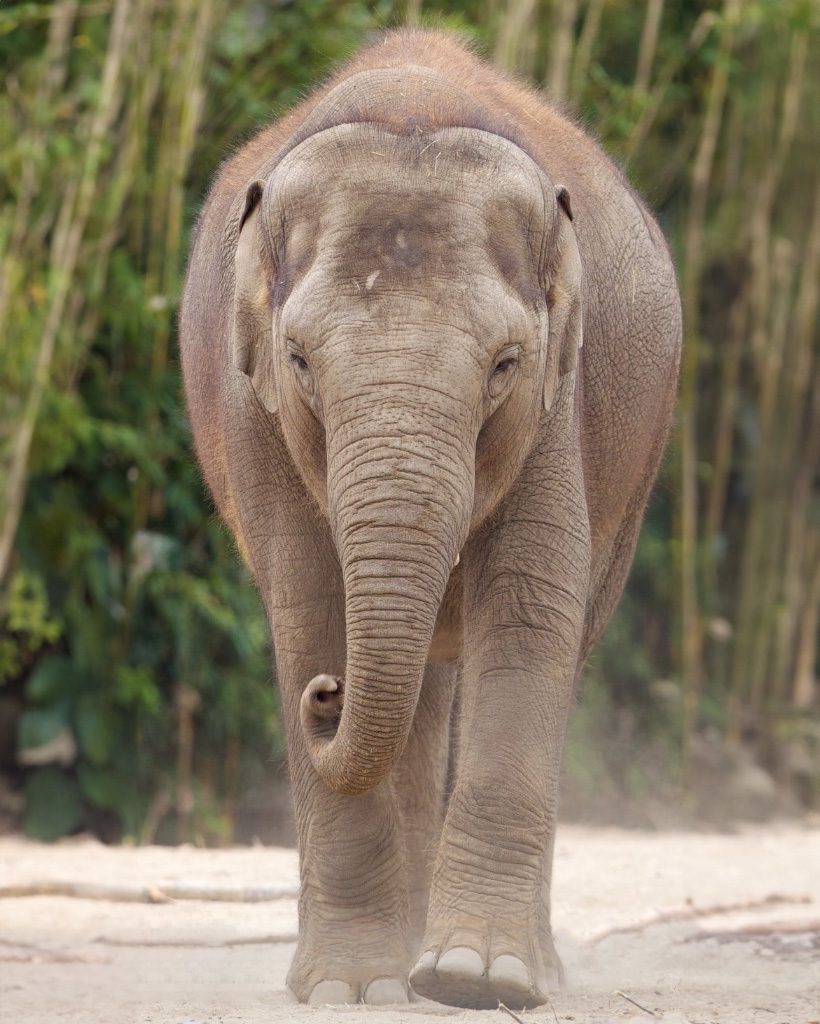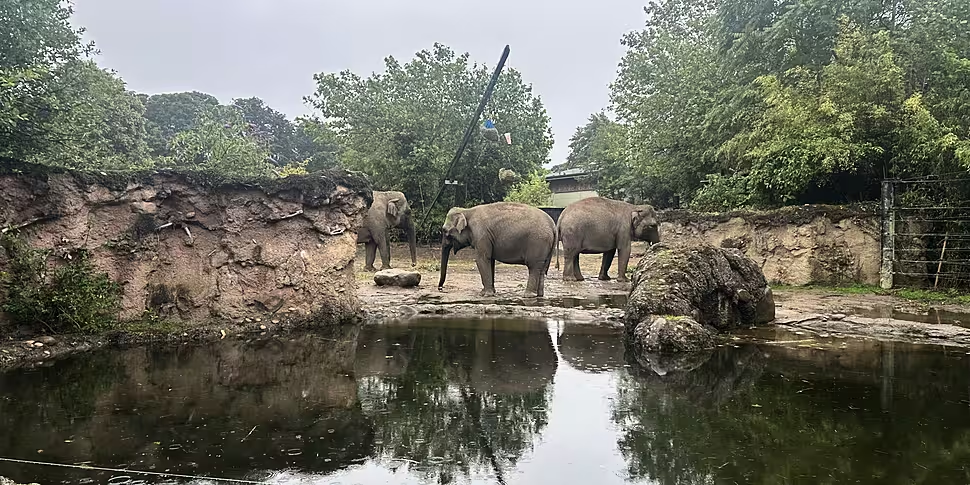A third elephant at Dublin Zoo has now contracted a virus that killed two other members of the herd this month.
The zoo confirmed this morning that 17-year-old Asha has now been diagnosed with Elephant Endotheliotropic Herpesvirus (EEHV) – a virus that poses no risk to humans but can be fatal for young elephants.
On Sunday, Asha’s seven-year-old daughter Zinda died from the ‘unpredictable and fatal’ virus.
That came a week after eight-year-old Avani also succumbed to the disease.
"Elephants grieve as much as we do" The Director of Dublin Zoo describes the grieving process that the elephants of the zoo have gone through after two of their herd died from a dangerous virus. A third elephant has now contracted the disease. pic.twitter.com/D4BRsHY2Ix
— NewstalkFM (@NewstalkFM) July 10, 2024
An emotional Dublin Zoo Director Christoph Schwitzer told Newstalk that the last few weeks have been a “horrendous time” at the zoo.
He noted that elephants grieve their dead just like humans.
“Elephants live in a very closely-knit matriarchal herd led by an adult female,” he said.
“When they lose a member of the herd they do grieve – we know that. We know that from the wild and we know it from human care as well.
“So, what we do is we leave the dead animal in there for a while so that the animals can actually say goodbye.
“I think that is very important we see that. The elephants go over and touch them with their trunks and all of that.
“So, it is very similar I would say to human society. You know, elephants grieve as much as we do.”
 Dublin Zoo’s 17-year-old Asian Elephant Asha who has now contracted Elephant Endotheliotropic Herpesvirus (EEHV). Image: Dublin Zoo
Dublin Zoo’s 17-year-old Asian Elephant Asha who has now contracted Elephant Endotheliotropic Herpesvirus (EEHV). Image: Dublin ZooThe cause of EEHV remains unknown and experts say it can be contracted both in the wild and in captivity.
“This virus lays latent or dormant in elephants both in zoos and in the wild,” said Dr Schwitzer.
“We know that Asian Elephants are carrying it in the wild as well and are also succumbing to it in the wild.
“It can lie dormant for years. It is not very well understood quite yet when it breaks out, why it breaks out and what changes happen when it breaks out.”
He said Dublin Zoo is taking part in global research into EEHV and is backing efforts to develop a vaccine against it.
 Seven-year-old Zinda who died after contracting Elephant Endotheliotropic Herpesvirus (EEHV) this month.
Seven-year-old Zinda who died after contracting Elephant Endotheliotropic Herpesvirus (EEHV) this month.Asha’s diagnosis means that half the zoo’s herd of six elephants have now caught the virus.
The virus is particularly dangerous for younger elephants and the positive news for Asha is that she is already over the danger age – with most elephants who die from EEHV under the age of 10.
“We are hoping that because she is 17 and the main age bracket that this virus affects is up to nine years of age, that Asha will actually be able to fight it with her own immune system,” said Dr Schwitzer.
Elephant herd
He said the zoo’s three remaining elephants seem to be doing well – noting that 22-year-old male elephant Aung Bo is kept separate from the herd and was never in contact with the virus.
The other two females, nine-year-old Samiya and 40-year-old Dina, are showing no signs of the virus; however, he warned that “because this is a fluid situation and we have seen a very quick deterioration in the two that unfortunately passed away over the last week, we cannot say how this will develop”.
“That's the main point that I want to make here,” he said. “It is ongoing and we have to acknowledge that.”
Dr Schwitzer said all eyes are now on Samiya who is most at-risk due to her young age.
"We are watching her very, very closely but as I say, she has been testing negative so far," he said. "Touch wood.
"Of the few positives that we can sometimes take, that is one of them, you know, we will have to monitor all three."
Dublin Zoo
Dr Schwitzer said the Dublin Zoo team has been “absolutely stunning” throughout the outbreak working throughout the night to make sure that the elephants get the treatment they need.
“You know, losing two elephants within the space of a week and still being in that sort of ongoing and fluid situation is really tough and hard on the entire team,” he said.
“I haven't seen anything like it in my time here – it is very difficult.”
Work is now continuing around the clock to ensure the survival of the other elephants – who are an at-risk breed with only 40,000 of them left around the world.
Additional reporting Michael Staines









